Description
Solution Manual for Fundamentals of Modern Manufacturing: Materials Processes and Systems, 7th Edition, Mikell P. Groover, ISBN: 111947521X, ISBN: 9781119475217
Package Includes:
Solutions to Multiple Choice Questions
Solutions to Review Questions and Problems
Instructor’s Only Questions with Answers
Table Of Contents
1 INTRODUCTION AND OVERVIEW OF MANUFACTURING
1.1 What Is Manufacturing?
1.2 Materials in Manufacturing
1.3 Manufacturing Processes
1.4 Production Systems
1.5 Manufacturing Economics
Part I Material Properties and Product Attributes
2 THE NATURE OF MATERIALS
2.1 Atomic Structure and the Elements
2.2 Bonding between Atoms and Molecules
2.3 Crystalline Structures
2.4 Noncrystalline (Amorphous)Structures
2.5 Engineering Materials
3 MECHANICAL PROPERTIES OF MATERIALS
3.1 Stress–Strain Relationships
3.2 Hardness
3.3 Effect of Temperature on Properties
3.4 Fluid Properties
3.5 Viscoelastic Behavior of Polymers
4 PHYSICAL PROPERTIES OF MATERIALS
4.1 Volumetric and Melting Properties
4.2 Thermal Properties
4.3 Mass Diffusion
4.4 Electrical Properties
4.5 Electrochemical Processes
5 DIMENSIONS, SURFACES, AND THEIR MEASUREMENT
5.1 Dimensions, Tolerances, and Related Attributes
5.2 Conventional Measuring Instruments and Gages
5.3 Surfaces
5.4 Measurement of Surfaces
5.5 Effect of Manufacturing Processes
Part II Engineering Materials
6 METALS 6.1 Alloys and Phase Diagrams
6.2 Ferrous Metals
6.3 Nonferrous Metals
6.4 Superalloys
7 CERAMICS
7.1 Structure and Properties of Ceramics
7.2 Traditional Ceramics
7.3 New Ceramics
7.4 Glass
7.5 Some Important Elements Related to Ceramics
8 POLYMERS
8.1 Fundamentals of Polymer Science and Technology
8.2 Thermoplastic Polymers
8.3 Thermosetting Polymers
8.4 Elastomers
8.5 Polymer Recycling and Biodegradability
9 COMPOSITE MATERIALS
9.1 Technology and Classification of Composite Materials
9.2 Metal Matrix Composites
9.3 Ceramic Matrix Composites
9.4 Polymer Matrix Composites
Part III Solidification Processes
10 FUNDAMENTALS OF METAL CASTING
10.1 Overview of Casting Technology
10.2 Heating and Pouring
10.3 Solidification and Cooling
11 METAL CASTING PROCESSES
11.1 Sand Casting
11.2 Other Expendable-Mold Casting Processes
11.3 Permanent-Mold Casting Processes
11.4 Foundry Practice
11.5 Casting Quality
11.6 Castability and Casting Economics
11.7 Product Design Considerations
12 GLASSWORKING
12.1 Raw Materials Preparation and Melting
12.2 Shaping Processes in Glassworking
12.3 Heat Treatment and Finishing
12.4 Product Design Considerations
13 SHAPING PROCESSES FOR PLASTICS
13.1 Properties of Polymer Melts
13.2 Extrusion
13.3 Production of Sheet and Film
13.4 Fiber and Filament Production (Spinning)
13.5 Coating Processes
13.6 Injection Molding
13.7 Compression and Transfer Molding
13.8 Blow Molding and Rotational Molding
13.9 Thermoforming
13.10 Casting
13.11 Polymer Foam Processing and Forming
13.12 Product Design Considerations
14 PROCESSING OF POLYMER MATRIX COMPOSITES AND RUBBER
14.1 Overview of PMC Processing
14.2 Open-Mold Processes
14.3 Closed-Mold Processes
14.4 Other PMC Shaping Processes
14.5 Rubber Processing and Shaping
14.6 Manufacture of Tires and Other Rubber Products
Part IV Particulate Processing of Metals and Ceramics
15 POWDER METALLURGY
15.1 Characterization of Engineering Powders
15.2 Production of Metallic Powders
15.3 Conventional Pressing and Sintering
15.4 Alternative Pressing and Sintering Techniques
15.5 Powder Metallurgy Materials and Economics
15.6 Product Design Considerations in Powder Metallurgy
16 PROCESSING OF CERAMICS AND CERMETS
16.1 Processing of Traditional Ceramics
16.2 Processing of New Ceramics
16.3 Processing of Cermets
16.4 Product Design Considerations
Part V Metal Forming and Sheet Metalworking
17 FUNDAMENTALS OF METAL FORMING
17.1 Overview of Metal Forming
17.2 Material Behavior in Metal Forming
17.3 Temperature in Metal Forming
17.4 Strain Rate Sensitivity
17.5 Friction and Lubrication in Metal Forming
18 BULK DEFORMATION PROCESSES IN METAL WORKING
18.1 Rolling
18.2 Forging
18.3 Extrusion
18.4 Wire and Bar Drawing
19 SHEET METALWORKING
19.1 Cutting Operations
19.2 Bending Operations
19.3 Drawing
19.4 Equipment and Economics for Sheet-Metal Pressworking
19.5 Other Sheet-Metal-Forming Operations
19.6 Sheet-Metal Operations Not Performed on Presses
19.7 Bending of Tube Stock
Part VI Material Removal Processes
20 THEORY OF METAL MACHINING
20.1 Overview of Machining Technology
20.2 Theory of Chip Formation in Metal Machining
20.3 Force Relationships and the Merchant Equation
20.4 Power and Energy Relationships in Machining
20.5 Cutting Temperature
21 MACHINING OPERATIONS AND MACHINE TOOLS
21.1 Machining and Part Geometry
21.2 Turning and Related Operations
21.3 Drilling and Related Operations
21.4 Milling
21.5 Machining Centers and Turning Centers
21.6 Other Machining Operations
21.7 Machining Operations for Special Geometries
21.8 High-Speed Machining
22 CUTTING-TOOL TECHNOLOGY
22.1 Tool Life
22.2 Tool Materials
22.3 Tool Geometry
22.4 Cutting Fluids
23 ECONOMIC AND PRODUCT DESIGN CONSIDERATIONS IN MACHINING
23.1 Machinability
23.2 Tolerances and Surface Finish
23.3 Machining Economics
23.4 Product Design Considerations in Machining
24 GRINDING AND OTHER ABRASIVE PROCESSES
24.1 Grinding
24.2 Related Abrasive Processes
25 NONTRADITIONAL MACHINING AND THERMAL CUTTING PROCESSES
25.1 Mechanical Energy Processes
25.2 Electrochemical Machining Processes
25.3 Thermal Energy Processes
25.4 Chemical Machining
25.5 Application Considerations
Part VII Property Enhancing and Surface Processing Operations
26 HEAT TREATMENT OF METALS
26.1 Annealing
26.2 Martensite Formation in Steel
26.3 Precipitation Hardening
26.4 Surface Hardening
26.5 Heat Treatment Methods and Facilities
27 SURFACE PROCESSING OPERATIONS
27.1 Industrial Cleaning Processes
27.2 Diffusion and Ion Implantation
27.3 Plating and Related Processes
27.4 Conversion Coating
27.5 Vapor Deposition Processes
27.6 Organic Coatings
27.7 Porcelain Enameling and Other Ceramic Coatings
27.8 Thermal and Mechanical Coating Processes
Part VIII Joining and Assembly Processes
28 FUNDAMENTALS OF WELDING
28.1 Overview of Welding Technology
28.2 The Weld Joint
28.3 Physics of Welding
28.4 Features of a Fusion-Welded Joint
29 WELDING PROCESSES
29.1 Arc Welding
29.2 Resistance Welding
29.3 Oxyfuel Gas Welding
29.4 Other Fusion-Welding Processes
29.5 Solid-State Welding
29.6 Weld Quality
29.7 Weldability and Welding Economics
29.8 Design Considerations in Welding
30 BRAZING, SOLDERING, AND ADHESIVE BONDING
30.1 Brazing
30.2 Soldering
30.3 Adhesive Bonding
31 MECHANICAL ASSEMBLY
31.1 Threaded Fasteners
31.2 Rivets and Eyelets
31.3 Assembly Methods Based on Interference Fits
31.4 Other Mechanical Fastening Methods
31.5 Molding Inserts and Integral Fasteners
31.6 Design for Assembly
Part IX Special Processing and Assembly Technologies
32 ADDITIVE MANUFACTURING
32.1 Fundamentals of Additive Manufacturing
32.2 Additive Manufacturing Technologies
32.3 Cycle Time and Cost Analysis
32.4 Additive Manufacturing Applications
33 PROCESSING OF INTEGRATED CIRCUITS
33.1 Overview of IC Processing
33.2 Silicon Processing
33.3 Lithography
33.4 Layer Processes Used in IC Fabrication
33.5 Integrating the Fabrication Steps
33.6 IC Packaging
33.7 Yields in IC Processing
34 ELECTRONICS ASSEMBLY AND PACKAGING
34.1 Electronics Packaging
34.2 Printed Circuit Boards
34.3 Printed Circuit Board Assembly
34.4 Electrical Connector Technology
35 MICROFABRICATION TECHNOLOGIES
35.1 Microsystem Products
35.2 Microfabrication Processes
36 NANOFABRICATION TECHNOLOGIES
36.1 Nanotechnology Products and Applications
36.2 Introduction to Nanoscience
36.3 Nanofabrication Processes
Part X Manufacturing Systems
37 AUTOMATION TECHNOLOGIES FOR MANUFACTURING SYSTEMS
37.1 Automation Fundamentals
37.2 Hardware for Automation
37.3 Computer Numerical Control
37.4 Industrial Robotics
38 INTEGRATED MANUFACTURING SYSTEMS
38.1 Material Handling
38.2 Fundamentals of Production Lines
38.3 Manual Assembly Lines
38.4 Automated Production Lines
38.5 Cellular Manufacturing
38.6 Flexible Manufacturing Systems
38.7 Computer Integrated Manufacturing
Part XI Manufacturing Support Systems
39 PROCESS PLANNING AND PRODUCTION CONTROL
39.1 Process Planning
39.2 Other Manufacturing Engineering Functions
39.3 Production Planning and Control
39.4 Just-In-Time Delivery Systems
39.5 Lean Production
40 QUALITY CONTROL AND INSPECTION
40.1 Product Quality
40.2 Process Capability and Tolerances
40.3 Statistical Process Control
40.4 Quality Programs in Manufacturing
40.5 Inspection Principle
40.6 Modern Inspection Technologies

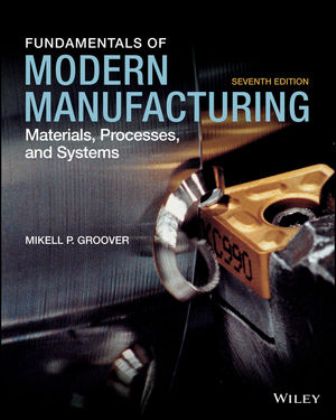
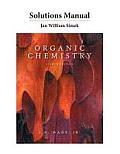
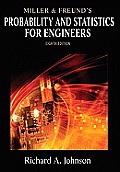
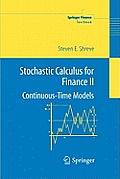
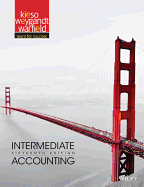

Reviews
There are no reviews yet.